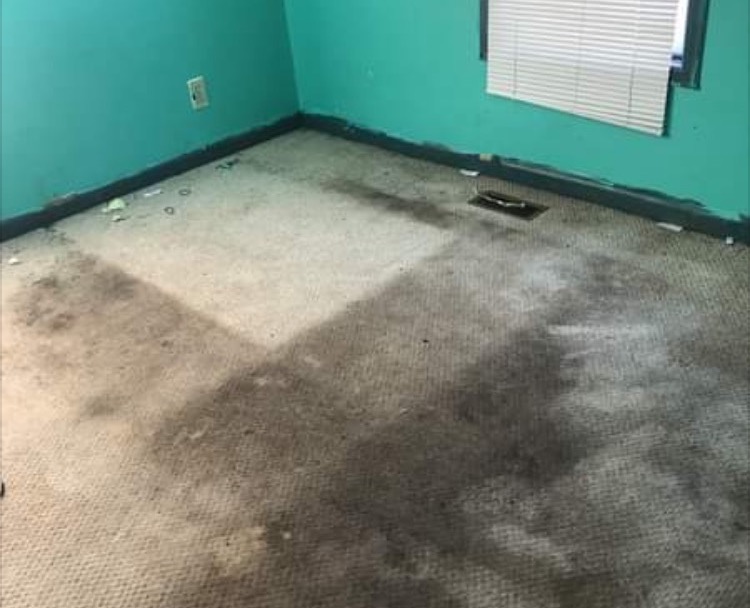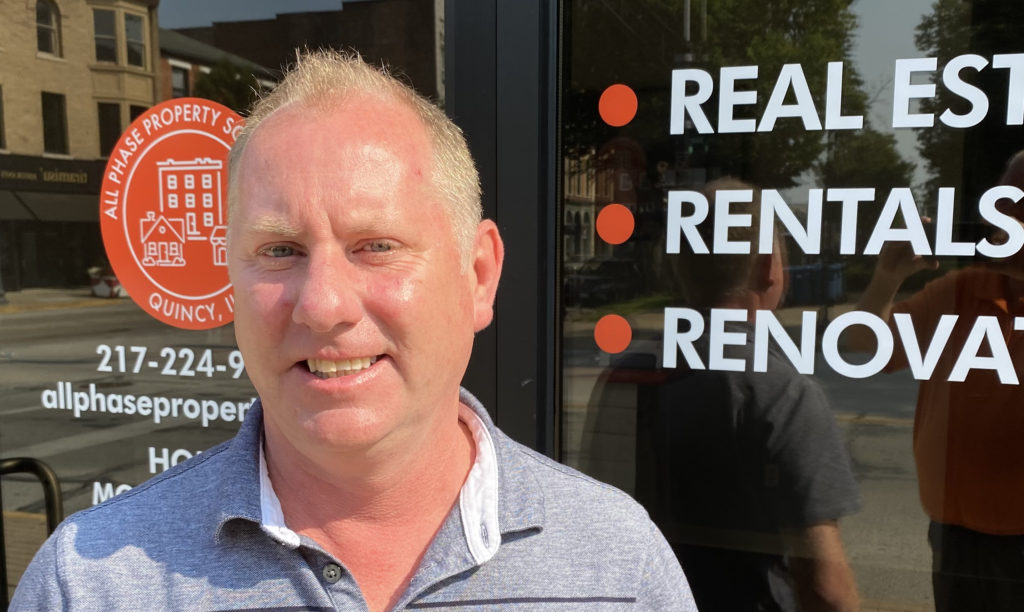Local landlords anxious for eviction moratorium to be lifted

QUINCY — The idea made complete sense.
Gov. JB Pritzker’s executive action has protected from eviction any Illinois residents who can’t pay rent because of the pandemic since March 2020.
Nearly 18 months later, local landlords are ready for the eviction moratorium to expire.
“A lot of politicians on the state and federal level are really looking for an easier off ramp. They’ve created something here that’s just really become a tiger,” said Bret Austin with All Phase Property Solutions, which owns and manages more than 400 rental units in Quincy.
Executive and Illinois Supreme Court orders are scheduled to expire Sept. 1. That would make many landlords happy.
However, those orders also were scheduled to expire on July 24. Pritzker extended the moratorium with another executive order on June 11. Pritzker has not given any indication what he plans to do as August comes to a close.
EDITOR’S UPDATE: WMAQ, the NBC affiliate in Chicago, reported Tuesday night that Pritzker has quietly extended a statewide ban on residential evictions through Sept. 18.
More than 85,000 renters at risk of eviction in Illinois
Capitol News Illinois reported earlier this month that Zillow, the online real estate marketplace, estimated 85,613 renter households were at risk of eviction at the end of July in Illinois.
Nationally, the delta variant of the COVID-19 virus is surging. Hospitalizations and positivity rates are skyrocketing, especially among unvaccinated people.
A federal moratorium expired July 31 but the Centers for Disease Control and Prevention announced a new moratorium on Aug. 3, lasting until Oct. 3. A federal judge subsequently dismissed a legal challenge to the order.
The new moratorium covers renters in communities experiencing a substantial or high level of community transmission of COVID-19. The CDC said more than 80 percent of U.S. counties were classified as such as of Aug. 1. Renters lose protection under the moratorium once their community is no longer experiencing a substantial or high level of community transmission.
The Aspen Institute reported more than 15 million people live in households that owe as much as $20 billion in back rent.
The Associated Press reported that smaller landlords with fewer than four units, who often don’t have the financing of larger property owners, were hit especially hard. As many as 58 percent have tenants behind on rent, according to the National Association of Realtors. Smaller landlords are owed more than half of the back rent.

Renters can get help from Illinois Rental Payment program
Austin says the national moratorium is designed more for subsidized housing, Section Eight housing or federal housing that falls under the guidance of the U.S. Department of Housing and Urban Development.
“When you start getting into the private rental world, it gets a lot more complex,” Austin said. “The unintended consequences of the eviction moratorium are you didn’t allow landlords to effectively communicate with their tenants. It broke that chain where you can work something out.
“Quite honestly, after a year and a half of a pandemic, a lot of tenants are just in a mode where they’re just like, ‘Don’t even talk to me. I don’t want to hear it. I know there’s an eviction moratorium, but you can’t get me out of this place.’ ”
Renters can apply for assistance through the Illinois Rental Payment program, administered by the Illinois Housing Development Authority. They must prove they have experienced a financial hardship because of the pandemic. Examples are getting laid off, their place of employment closed, a reduction of hours at work, the inability to find work because of the pandemic and having to stay home with children because their day care or school was closed.
Applicants are eligible for as many as 15 months of assistance. The grant can cover past due rent from the previous 12 months and future rental assistance for the next three months, if deemed necessary. The maximum grant amount is $25,000.
IHDA says on its website it has received 98,370 completed applications for the latest round of $504 million in funding through the rental payment program. It has funded 25,500 applications at an amount of $220,973,063.
Austin: 10 percent of renters struggling with payments
Austin said at one point about 15 to 20 percent of his renters had difficulty staying current with their payments because of the pandemic.
“There are very responsible people who got affected, and we worked stuff out,” Austin said.
Today he believes that figure is at approximately 10 percent, which means about 40 to 45 of his units.
“Now (the renters) are piling up debt, a responsibility that they’re probably not going to be able to pay,” Austin said. “Eventually you’re going to end up ruining your credit, you’re going to have move out at some point or we’re going to evict you. So let’s try and work it out.”
Dan Neiswender owns and manages approximately 130 properties at Qtown Properties in Quincy. He says he has a good relationship with 85 to 90 percent of his renters.
“If somebody gave me the green light to get rid of people right now, I’d probably have six to eight no-brainers right now,” he said. “When people don’t pay their rent, it’s really no different from that person heading to Walmart to steal a phone card, a 12-pack of Mountain Dew and a couple pairs of shirts and socks. You’re stealing. You’re literally taking food out of my kid’s mouth. I still have the mortgage to pay. We also pay all the utilities in many of our units. For some, they’re not paying rent and they’re getting utilities for free as well.”
Neiswender: Lack of communication leads to frustration
Neiswender believes between 90 to 95 percent of his delinquent renters are “gaming the system” by claiming hardships created by the pandemic prevent them from paying.
“A legitimate percentage truly are having difficulties,” he said. “But most of the (renters) have been able to work and just don’t, or they’ve gotten stimulus money. There’s really very few excuses out there.
“What infuriates us the most is the lack of communication. If you’re going through a tough time and you’ve been a good renter for a while and you say, ‘Hey, I lost my job’ or ‘I’ve got the surgery in two weeks and I’m probably going to be a couple hundred bucks short this month,’ hey, no worries. You communicated with us. Things happen.
“It’s the turning off your phone. Changing your phone. Never answering the door. Not telling us what the problem. That’s when we get irritated and frustrated.”
Austin says his firm will assist tenants with filling out forms for the rental assistance program. Of the approximately 40 renters struggling to meet payments during the pandemic, he says about 25 have successfully been reimbursed.
The rest?
“Unsolvable,” he said. “Thousands of dollars in damages. We’ve had people for months hunker down in apartments, not taking care of it, not living a normal day-to-day life, becoming complacent with money and bills. Some don’t pay utility bills. We’ve had water break issues. We’ve had all kinds of things happen. We have one tenant who’s up to more than $12,000 owed on a $600-a-month apartment.
“What we’ve ended up with is a solution that was looking for a problem.”
Miss Clipping Out Stories to Save for Later?
Click the Purchase Story button below to order a print of this story. We will print it for you on matte photo paper to keep forever.

